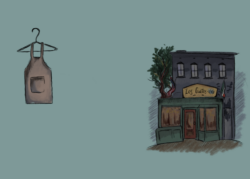The Georgetown University Honor Council approved and published a revised version of the Honor System Sanctioning Guidelines on Wednesday.
The revised guidelines were rewritten to clarify the definitions of common cases of academic dishonesty, including plagiarism, cheating and impermissible collaboration. According to Honors Council Student Chair Suzanne Gerus (SFS ‘02), the changes are mainly clarifications or new interpretations of previously existing guidelines.
“Almost nothing is really new. What’s new is the fact that we’re publishing it,” Assistant for Academic Affairs Sonia Jacobson said.
According to Jacobson, a need for more consistency prompted the council to re-evaluate its methods of sanctioning after five years with the old system.
Students with similar alleged offenses often received very different sanctions under the former system, said Joanna Christman (CAS ‘02), an Honor Council member.
“Although each case is different, there is enough similarity that there should be more consistency than we’ve seen,” Jacobson said.
In the revised guidelines, the Honor Council defines the difference between a minor and major offense. A major offense is an assignment which counts for at least 20 percent of a student’s grade, although this standard may vary slightly depending on the professor. An assignment that counts for less than 20 percent of the grade is considered minor. Christman said that a minute change such as this can have a large impact on the sanctions meted out.
According to Gerus, the revised guidelines “are not set in stone.” The guidelines are designed to advise the Honor Council members in their decisions, but sanctions may take into account other circumstances.
“Guidelines are not intended to be promises … You can never really predict what five people on a hearing board will decide,” Jacobson said.
Christman said that by publishing the guideline revisions, the Honor Council hopes to increase its visibility on campus.
“We’re trying to show that the process is educational and not punitive,” Jacobson said.




